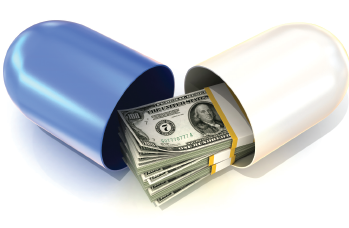
© djmilic / shutterstock.com
It should not be a surprise to anyone that the U.S. is facing a national opioid crisis. It may be a surprise, however, that the federal government recently passed a law to address this crisis—a law that may have a profound impact on many healthcare facilities, some of which are not involved in the substance abuse space in any way. Therefore, it is critical to understand the law and what it may mean for your healthcare facility in the future to remain legally compliant.
Explore This Issue
February 2019The Basics
On Oct. 24, 2018, the Substance Use-Disorder Prevention that Promotes Opioid Recovery and Treatment for Patients and Communities Act (SUPPORT Act), a broad piece of bipartisan legislation intended to address the national opioid crisis, was signed into law. One of the bills included in the SUPPORT Act is the Eliminating Kickbacks in Recovery Act of 2018 (EKRA).
EKRA creates criminal penalties for any individual who: 1) “solicits or receives any remuneration (including any kickback, bribe, or rebate) directly or indirectly, overtly or covertly, in cash or in kind, in return for referring a patient or patronage to a recovery home, clinical treatment facility, or laboratory,” or 2) “pays or offers any remuneration (including any kickback, bribe, or rebate) directly or indirectly, overtly or covertly, in cash or in kind, to induce a referral of an individual to a recovery home, clinical treatment facility, or laboratory or in exchange for an individual using the services of that recovery home, clinical treatment facility, or laboratory.”
Notably, EKRA extends its prohibitions to services covered by a healthcare benefit program, which includes both government and private payers.
Several noteworthy exceptions to EKRA exist, some of which pull through language included in the federal Anti-Kickback Statute safe harbors and exceptions. Specifically, the Act does not apply to the following:
- A discount or other reduction in price obtained by a provider of services or other entity under a healthcare benefit program if the reduction in price is properly disclosed and appropriately reflected in the costs claimed or charges made by the provider or entity;
- A payment made by an employer to an employee or independent contractor (who has a bona fide employment or contractual relationship with such employer) for employment, if the employee’s payment is not determined by or does not vary by—
- The number of individuals referred to a particular recovery home, clinical treatment facility, or laboratory;
- The number of tests or procedures performed; or
- The amount billed to or received from, in part or in whole, the health care benefit program from the individuals referred to a particular recovery home, clinical treatment facility, or laboratory;
- A discount in the price of an applicable drug of a manufacturer that is furnished to an applicable beneficiary under the Medicare coverage gap discount program under section 1860D–14A(g) of the Social Security Act (42 U.S.C. 1395w–114a(g));
- A payment made by a principal to an agent as compensation for the services of the agent under a personal services and management contract that meets the requirements of section 1001.952(d) of title 42, Code of Federal Regulations, as in effect on the date of enactment of this section;
- A waiver or discount (as defined in section 1001.952(h)(5) of title 42, Code of Federal Regulations, or any successor regulation) of any coinsurance or copayment by a healthcare benefit program if—
- The waiver or discount is not routinely provided; and
- The waiver or discount is provided in good faith;
- A remuneration described in section 1128B(b)(3)(I) of the Social Security Act (42 U.S.C. 1320a–7b(b)(3)(I));
- A remuneration made pursuant to an alternative payment model (as defined in section 1833(z)(3)(C) of the Social Security Act) or pursuant to a payment arrangement used by a State, health insurance issuer, or group health plan if the Secretary of Health and Human Services has determined that such arrangement is necessary for care coordination or value-based care; or
- Any other payment, remuneration, discount or reduction as determined by the Attorney General in consultation with the Secretary of Health and Human Services by regulation.
The language of the act is broad, and the term laboratory is not limited to just those laboratories associated with substance abuse services. Instead, laboratory is defined as “a facility for the biological, microbiological, serological, chemical, immuno-hematological, hematological, biophysical, cytological, pathological, or other examination of materials derived from the human body for the purpose of providing information for the diagnosis, prevention, or treatment of any disease or impairment of, or the assessment of the health of, human beings.”
Therefore, enforcement action under EKRA could potentially reach laboratories outside the scope of substance abuse treatment. Additionally, EKRA seems to implicate engagement of sales and marketing representatives, because such individuals are compensated for inducing referrals.